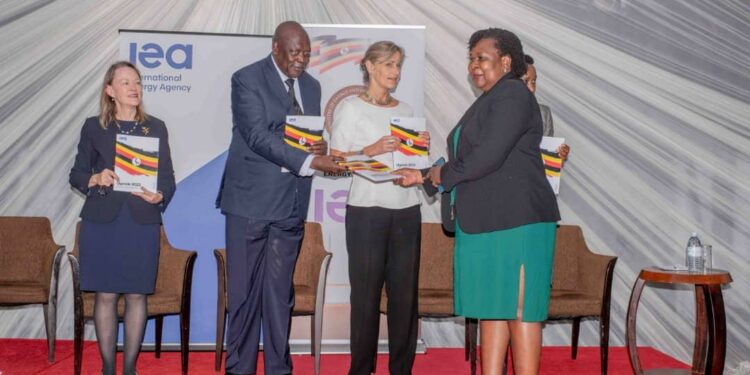In a momentous event held in Kampala, Uganda, the Government of Uganda (GOU) and the International Energy Agency (IEA) launched the highly anticipated In-Depth Review (IDR) Report of Uganda’s Energy Sector.
Presided over by Hon. Peter Lokeris, Minister of State for Mineral Development, the launch on Friday evening marked a significant milestone in Uganda’s journey towards achieving its ambitious energy targets.
The IEA is an autonomous organization that works to ensure reliable, affordable, and clean energy for its member countries and beyond. An IDR Report, on the other hand, is a thorough assessment that provides detailed analysis and policy recommendations on a country’s energy sector.
The IEA, represented by Deputy Executive Director Ms Mary Bruce Warlick and Programme Officer Ms Syrine El Abed, joined the event as a testament to the collaborative efforts between the GOU and the IEA. The Norwegian Government, a key project financier, was represented by Ambassador H.E. Anne Kristin Hermansen.
The launch witnessed the presence of top officials from various Ugandan Ministries, Departments, and Agencies, particularly those focused on Energy, Petroleum, and Minerals Development. Hon. Okaasai Sidronious Opolot, Minister of State for Energy, highlighted the significance of the IDR Report in shaping Uganda’s new Energy Policy for 2023.
Ms Grace Tusiime, the Under Secretary of the Ministry of Energy and Mineral Development (MEMD), praised the Ministry’s technical team for their excellent work on the project. She represented the Permanent Secretary, Ms Irene Bateebe.
A panel discussion featuring eminent experts from MEMD, IEA, NORAD, the African Development Bank, and the Private Sector shed light on various energy policy and strategic planning aspects, providing valuable insights and recommendations.
Further strengthening the partnership between the GOU and the IEA, a Memorandum of Understanding was signed, focusing on mutual cooperation in future projects.
Dr. Gerald Banaga–Baingi, the Assistant Commissioner of Technical Planning at MEMD, who coordinated the IDR Project, revealed that following the IDR Report, Uganda will launch its Energy Transition Plan within a month. Uganda’s Energy Transition Plan will outline the country’s strategies for adopting renewable energy sources and addressing climate change.
IEA’s Warlick commended Uganda for its significant progress and noted that the country will soon become the first in Sub-Saharan Africa to possess both essential documents: the IDR Report and an Energy Transition Plan.
In his address, Minister Lokeris emphasized the report’s role in guiding Uganda’s energy transition and stressed the importance of comprehensive energy assessment, data enhancement, and tackling transmission bottlenecks for a sustainable future. He also underscored the significance of public-private partnerships, investment in renewable energy resources, and adherence to transparency standards in the oil sector as part of Uganda’s commitment to responsible energy management and development.
The Project team later paid a courtesy visit to Hon. Dr Ruth Nankabirwa Ssentamu, Minister of Energy and Mineral Development, at her office at Amber House in Kampala. The Minister expressed gratitude for the collaborative efforts that have set Uganda on a clear path to energy sustainability.
The launch of the IDR Report signifies Uganda’s commitment to a more sustainable, efficient, and inclusive energy future, aligning with global energy transition goals. Through partnership and innovation, Uganda is poised to capitalize on its abundant natural resources and the determination of its people to transform into a modern and prosperous country.
Do you have a story in your community or an opinion to share with us: Email us at editorial@watchdoguganda.com













